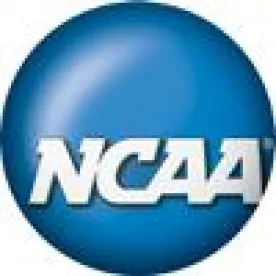Three former college athletes are the latest to file a class action lawsuit against the National Collegiate Athletic Association (NCAA), asserting the NCAA and its 11 conferences collectively share “monopsony” over college athletes.
Kenyata Johnson, Barry Brunetti, and D.J. Stephens filed their class action complaint in the U.S. District Court for the Northern District of California just three months after the landmark ruling from U.S. District Judge Claudia Wilken. Judge Wilken ruled in favor of a group of college student-athletes led by retired professional basketball player Ed O’Bannon against the NCAA. In O’Bannon v. NCAA, Judge Wilken struck down NCAA regulations prohibiting student-athletes from receiving compensation beyond scholarships for use of their names, images and likenesses.
The new class action accuses the NCAA and its members of unlawfully agreeing that no college will pay an athlete any amount that exceeds the value of an athletic scholarship. This agreement, the plaintiffs argue, violates the Sherman Act and limits the value of athletic scholarships at an amount substantially below what an athlete could earn for his or her services in a competitive market. As a result, the arbitrary cap imposes a lower standard of living and significant hardships on college athletes.
They assert that because the NCAA and its members are the “only game in town” in providing compensation to college athletes, such a restriction creates an unlawful restraint of trade in (1) the market for NCAA Division 1 football player services; and (2) the market for NCAA Division 1 men’s basketball player services. Plaintiffs conclude that through these restraints, the NCAA and its members have created a “take it or leave it market” for college athletes.
“In enacting the challenged restraint, the NCAA and its members have ultimate power to artificially depress compensation to college athletes. If a top-tier athlete doesn’t like it, he or she essentially has no reasonably close alternative. That is the nature of a monopsony,” identifies the complaint.
Other allegations in the complaint against the NCAA include:
-
The cap is simply a “cost containment mechanism” to preserve more of the benefits of a lucrative enterprise for the NCAA and its member institutions
-
Depriving consumers of the potential opportunity of seeing numerous players remain in the college system for longer periods of time
The plaintiffs’ complaint also offers an alternative to the NCAA’s current regulations – to create an open market with no restriction on the amount of scholarship money a school can provide to an athlete. The plaintiffs contend such a change would allow NCAA member conferences to compete among themselves as to the financial aid terms that will be made available to college athletes.




 />i
/>i
